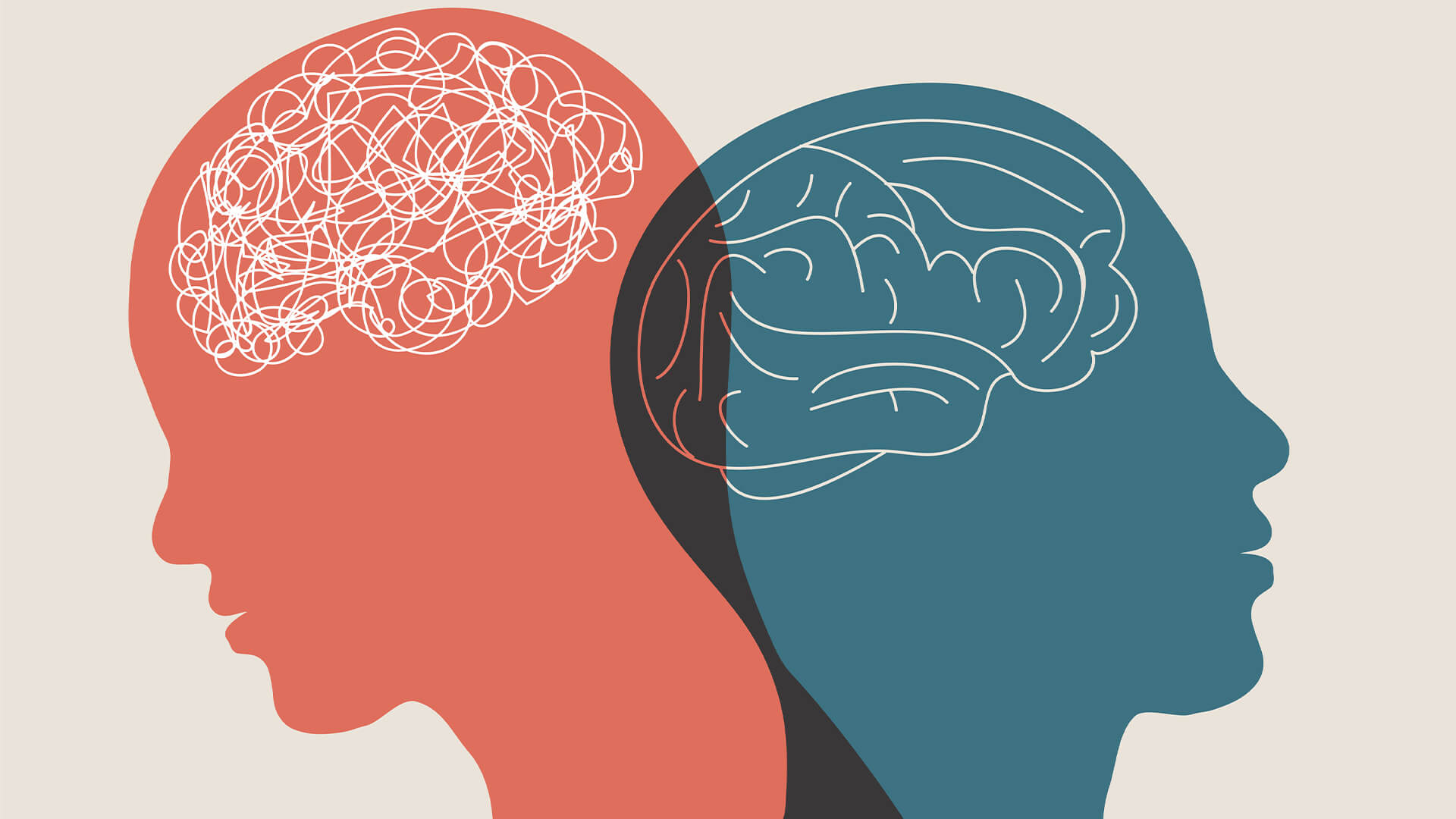Good mental health is a state of well-being in which an individual can cope with life’s challenges, work productively, and contribute to their community. It involves emotional resilience, positive self-esteem, and the ability to maintain healthy relationships.
Achieving good mental health requires self-awareness, self-care, and seeking support when needed. Taking care of one’s mental health is essential for overall well-being and can positively impact physical health. It is a dynamic and ongoing process that varies for each person, and can be influenced by factors such as genetics, environment, and life experiences.
Prioritizing mental health through self-care practices, mindfulness, and seeking professional support when necessary can lead to a fulfilling and balanced life, improving cognitive function and overall happiness.

Credit: www.ghp-news.com
Defining Good Mental Health
Good mental health is essential for overall well-being, as it impacts how we think, feel, and act. In this section, we will explore the components that define good mental health, including mental well-being and emotional stability.
Mental Well-being
Mental well-being encompasses aspects such as self-acceptance, positive relationships, personal growth, and a sense of purpose. When individuals experience good mental well-being, they can effectively cope with life’s challenges, maintain a sense of balance, and achieve their full potential. This state of mind promotes a positive outlook on life and allows individuals to navigate through difficult situations. It provides a strong foundation for resilience and adaptability to changing circumstances.
Emotional Stability
Emotional stability refers to the ability to manage and express emotions in a healthy manner. It involves being aware of one’s emotions, regulating them effectively, and handling stress and anxiety in a constructive way. Individuals with emotional stability can maintain a sense of calm and composure even during challenging times. This stability allows for a more peaceful and fulfilling life, fostering positive interpersonal relationships and promoting overall psychological well-being.
Factors Affecting Mental Health
Mental health is a vital aspect of overall well-being. It encompasses emotional, psychological, and social well-being, affecting how we think, feel, and act. Several factors play a crucial role in shaping an individual’s mental health, including biological, environmental, and social influences. Understanding these factors is essential in promoting and maintaining good mental health.
Biological Influences
Biological factors such as genetics, brain chemistry, and hormonal imbalances significantly impact mental health. Genetic predisposition to certain mental disorders can increase the vulnerability of an individual. Furthermore, neurotransmitter imbalances can disrupt communication between nerve cells, contributing to conditions like depression and anxiety.
Environmental Influences
The environment in which individuals live and work can have a profound effect on their mental health. Stressful life events, such as financial difficulties, trauma, or loss of a loved one, can trigger mental health issues. Additionally, exposure to toxins and pollutants in the environment can potentially impact brain function and contribute to mental health disturbances.
Social Influences
The relationships and social interactions that individuals engage in play a significant role in their mental well-being. Social support from family, friends, and community can act as a protective factor against mental health challenges. Conversely, social isolation and lack of meaningful connections can exacerbate the risk of developing mental health disorders.
Signs Of Good Mental Health
Understanding the signs of good mental health is crucial for maintaining overall well-being. It involves various elements that contribute to a positive mindset and emotional stability. Here are some key indicators of good mental health:
Positive Self-esteem
Positive self-esteem is a fundamental aspect of good mental health. It involves having confidence in oneself and a healthy level of self-worth. Individuals with good mental health are generally able to appreciate their strengths and accept their imperfections. Cultivating a positive self-image enables individuals to navigate life’s challenges with resilience and confidence.
Healthy Coping Mechanisms
Healthy coping mechanisms are essential for maintaining good mental health. This involves the ability to effectively manage stress, difficulties, and emotions. Those with good mental health often engage in activities that promote relaxation, such as exercise, meditation, or spending time with loved ones. Additionally, seeking professional help when needed and practicing self-care are vital components of healthy coping strategies.
Resilience To Stress
Resilience to stress is another hallmark of good mental health. Individuals with good mental health can effectively navigate through high-pressure situations and bounce back from adversities. Developing resilience involves building strong support systems, fostering a positive mindset, and embracing challenges as opportunities for growth.
By recognizing these signs of good mental health, individuals can take proactive steps to prioritize their emotional well-being and lead fulfilling lives.
Strategies For Maintaining Good Mental Health
Regular Exercise
Regular exercise is not only beneficial for physical health but also plays a crucial role in maintaining good mental health. Engaging in physical activities such as walking, running, swimming, or yoga can help reduce stress, anxiety, and depression. It also releases endorphins, the body’s natural stress relievers, promoting a sense of well-being and positivity.
Mindfulness And Meditation
Mindfulness and meditation are powerful tools for improving mental well-being. Practicing mindfulness involves staying present in the moment, focusing on thoughts and feelings without judgment. Meditation, on the other hand, helps calm the mind, reduces negative emotions, and enhances self-awareness. Both practices are effective in managing stress and improving overall mental health.
Seeking Social Support
Seeking social support and maintaining strong social connections is vital for good mental health. Spending quality time with friends and family, engaging in meaningful conversations, and seeking help when needed can provide a sense of belonging and security. It fosters a supportive environment that promotes mental well-being and resilience in challenging times.
Seeking Professional Help For Good Mental Health
Seeking professional help is an important step in achieving good mental health. With the right support and guidance, individuals can effectively manage their mental well-being and lead fulfilling lives. Here, we will explore the various options available when seeking professional help for good mental health.
Therapy Options
Therapy is a fundamental aspect of achieving good mental health. It provides a safe and supportive environment for individuals to explore their thoughts, emotions, and behaviors. There are diverse therapy options available, including:
- Cognitive Behavioral Therapy (CBT)
- Psychotherapy
- Family therapy
- Group therapy
Medication Options
Medication can often be a valuable component in treating various mental health conditions. It is typically prescribed by a licensed psychiatrist or medical professional. Common medication options include:
- Antidepressants
- Anxiolytics
- Antipsychotics
- Mood stabilizers
Frequently Asked Questions For What Is A Good Mental Health?
What Are Signs Of Good Mental Health?
Good mental health is indicated by a positive mood, the ability to cope with stress, strong relationships, and self-confidence. It also involves being able to enjoy life, be productive, and contribute to the community.
How Can I Maintain Good Mental Health?
To maintain good mental health, it’s important to practice self-care, establish healthy boundaries, seek support when needed, stay physically active, and engage in activities that bring joy. Mindfulness techniques, such as meditation and deep breathing, can also be beneficial.
What Role Does Nutrition Play In Mental Health?
Nutrition plays a crucial role in mental health. Consuming a balanced diet rich in fruits, vegetables, whole grains, lean protein, and healthy fats supports overall well-being. Certain nutrients, such as omega-3 fatty acids and vitamin D, are particularly beneficial for mental health.
Conclusion
Good mental health is essential for overall well-being. It encompasses emotional, psychological, and social aspects of life. Embracing a holistic approach to mental health can lead to a fulfilling and balanced life. By prioritizing self-care, seeking support when needed, and maintaining a positive mindset, individuals can work towards achieving good mental health.

